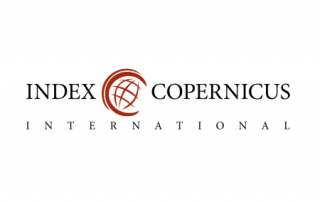About the Journal
Leading thinking on biotechnology business management
The Journal of Commercial Biotechnology, in print since 2003, is the definitive international quarterly publication for life sciences business professionals. The Journal is designed specifically for those professionals who need to enhance their knowledge of business strategy and management, improve and advance their product development, or those who want to keep up-to-date with current issues and industry trends. Our focus is on the life science industries, e.g. biopharma (biotechnology & pharmaceuticals, MedTech and digital health; and on food and agricultural products and services to improve organisms.
Each issue publishes peer-reviewed, authoritative, cutting-edge articles and perspectives (“Biotechnology Industry Perspectives”; and ”Bioentrepreneurship University Insights”) written by the leading practitioners and researchers in the field. We publish both submitted and solicited articles (including special editions), addressing topics such as:
- Management, Leadership, and collaborative teams
- Commercialization, Marketing, and Innovation strategies and best practices
- Entrepreneurship, including education
- Policy
- Finance & transactions associated with founding, building, partnering and exiting
- Law, Intellectual Property, Regulation, Reimbursement
- Bioethics
The Journal of Commercial Biotechnology is a unique forum for all those involved in life sciences commercialization to present, share, and explore new ideas, latest thinking and best practices, making it an indispensable guide for those developing projects and careers within this fast-moving and diverse field.
Ethical Journal Guidelines
Journal of Commercial Biotechnology adheres to the COPE Core Practices regarding ethical guidelines for publication. In addition, we support use of the Transparency and Openness Promotion (TOP) guidelines regarding journal policies and practices. To view Ethical Guidelines, click here.
Following are a list of articles on the latest edition of the Journal
Volume 28, Issue 6 2023
- Jurisprudential Analysis of International Intellectual Property Dynamics in the Biomedical Sector
- Implementing Biochip Recognition Technology for Enhancing Information Sharing Platforms in Healthcare Settings
- Analyzing the Competencies of Bio Entrepreneurs in Canada's Manufacturing Sector: Assessing Socioeconomic and Environmental Implications
- Enhancing the Exploration of Historical Biocultural Diversity in Southeast Asian Art History through Bio-Commercial Technologies: A Novel Approach
- Advancing Health Outcomes in Higher Education: Innovative Strategies for Integrating Physical Education with Informatization Systems under the Great Health Perspective
- Empowering Bio Entrepreneurship: Integrating Corporate Entrepreneurship in Australian Higher Education for Enhanced Learning and Innovation
- Marketing Strategies for Rural Tourism Development Toward Biodiversity Conservation
- Innovating and Evaluating Music Education Materials through Music Cognition and Bioinformatics
Article
Following are the most recent editions of the Journal
Volume 29
Volume 28
- Volume 28, Issue 1 2023.
- Volume 28, Issue 2 2023.
- Volume 28, Issue 3 2023.
- Volume 28, Issue 4 2023.
- Volume 28, Issue 5 2023.
- Volume 28, Issue 6 2023.
Volume 27
Getting the Most from the Journal
- Subscribe to the Journal of Commercial Biotechnology as an individual or institution
- Setup Journal for Individual or Institutional access
- Any Questions? Contact Us
Frequency
6 Issues Annually
Editor-in-Chief
Coming Soon
Open Access Articles
List of the most recent Open Access articles available on Journal of Commercial Biotechnology.
All Open Access articles are published under the Creative Commons Attribution-NonCommercial-NoDerivatives 4.0 International (CC BY-NC-ND 4.0). This license applies to persons downloading Open Access articles.
Press Releases
You may wish to develop a Press Release to market your Published Research in Journal of Commercial Biotechnology.
- Steps to Writing a Press Release: How to create a Press Release for your Published Research in Journal of Commercial Biotechnology; including slide show and PDF guidance to download.
- Sample Press Release: An example of a National Cancer Institute Press Release to guide authors to prepare your own.










